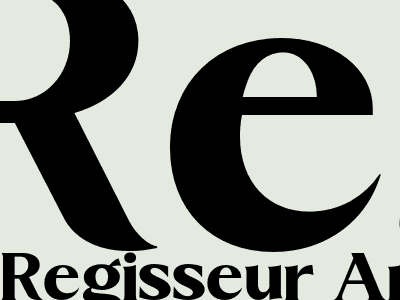
An Interview with Regisseur Andres Veiel About His Film "Riefenstahl"
A Conversation About Art, Propaganda, and the Limits of Redemption
Introduction
Regisseur Andres Veiel's latest film, "Riefenstahl," explores the life and work of Leni Riefenstahl, the filmmaker who became notorious for her collaboration with the Nazi regime. In the film, Veiel delves into the complex and contradictory nature of Riefenstahl's legacy, examining her artistic brilliance as well as her role in promoting Nazi ideology.
In a recent interview, Veiel discussed the motivations behind his film and his own thoughts on Riefenstahl's legacy. He spoke about the challenges of portraying such a controversial figure, and the importance of understanding the historical context in which she worked.
Riefenstahl's Artistic Legacy
Veiel acknowledged Riefenstahl's undeniable talent as a filmmaker. He praised her technical skill and her ability to create visually stunning images. However, he also emphasized the importance of examining the content of her films, particularly her work for the Nazi regime.
"Riefenstahl was a brilliant filmmaker, but she also made films that glorified the Nazi regime and contributed to its propaganda efforts," Veiel said. "It's important to recognize both her artistic achievements and her complicity in the horrors of the Holocaust."
The Limits of Redemption
One of the central questions that Veiel explores in his film is whether Riefenstahl can be redeemed for her role in promoting Nazi ideology. He said that he approached this question with a great deal of skepticism.
"I don't believe that Riefenstahl ever fully renounced her Nazi past," Veiel said. "She may have expressed regret for her actions, but I think she always remained proud of her work for the regime. It's up to each individual viewer to decide whether or not they believe she deserves redemption."
The Importance of Historical Context
Veiel emphasized the importance of understanding the historical context in which Riefenstahl worked. He said that it is impossible to judge her actions without taking into account the political and social pressures of the time.
"Riefenstahl was a product of her time," Veiel said. "She was born into a wealthy family in pre-World War I Germany, and she was raised in a culture that glorified nationalism and militarism. It's important to remember that many Germans were seduced by the Nazi ideology, and Riefenstahl was no exception."
Conclusion
Veiel's film "Riefenstahl" is a complex and challenging work of art that forces viewers to confront the dark side of German history. It is a film that raises important questions about the nature of art, propaganda, and the limits of redemption.
In the end, Veiel leaves it up to the viewer to decide whether or not Riefenstahl deserves redemption. He said, "I hope that my film will encourage people to think critically about her legacy and to draw their own conclusions."